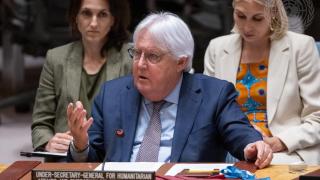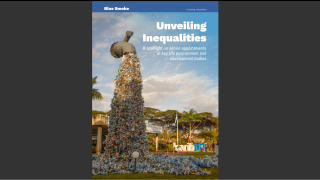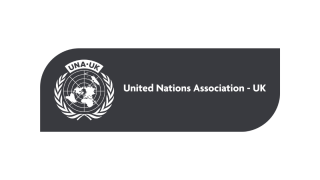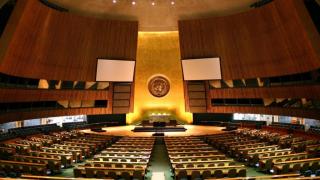
The UN’s Emergency Relief Coordinator (ERC), the head of the UN’s Office for the Coordination of Humanitarian Affairs (OCHA), Martin Griffiths, has announced his intention to stand down from the role in June. The UN Secretary-General must now begin the search for Griffiths’ successor with fewer than three months to find a suitably qualified candidate.
OCHA coordinates the UN’s humanitarian relief work – it works to ensure that the disaster responses of countries, NGOs, and UN agencies are mutually supportive and reinforcing, and fundraises to ensure survivors’ needs are met. While the direct budget and staffing of OCHA is relatively small, it coordinates the spending of some $46 billion in humanitarian assistance – more than 10 times the budget of the UN Secretariat.
The role of Emergency Relief Coordinator is one of the most important in the UN system and the Secretary-General must therefore ensure the most qualified person is found for this job – the UN and the world can afford nothing less.
To arbitrarily restrict the search for the next ERC to nationals of any one state would be unconscionable and gravely irresponsible.
However, like many of the senior roles at the UN, this post has been informally “ringfenced” for a national of a certain permanent member of the UN Security Council, in this case: the United Kingdom. The last five Emergency Relief Coordinators have been British. The outgoing ERC, Martin Griffiths, himself suggested that he should be the last British national to take the role, arguing that it is “too crucial a job to be left to favouritism”.
UNA-UK has long campaigned against national ringfencing, which damages both the legitimacy of the UN as a global organisation with an independent international civil service, and also its performance through a failure to recruit for senior roles on merit. This in turn fuels ongoing resentments from many nations that the organisation only represents powerful states. The Blue Smoke campaign – co-founded by UNA-UK – released a briefing highlighting how this ongoing practice has blighted the UN system and is in clear contravention of both the general provisions of the UN Charter and more than 15 specific decisions of the General Assembly, including Resolution 46/232 which states that no senior official should succeed an official of the same nationality into the same role.
In addition to being inappropriate for any UN member state to claim ownership of any role, there are specific reasons why it might be inappropriate for the UN’s Emergency Relief Coordinator to be British. In recent months, the UK’s response to the harrowing humanitarian crisis unfolding in Gaza has been dangerously inadequate and is currently falling short of its obligations under international law. While the UK voted in favour of last month’s Security Council Resolution calling for a temporary ceasefire, and despite the provisional order of the International Court of Justice (ICJ) in January 2024 (which concluded there was a plausible risk of genocide in Gaza), both the government and opposition continue to provide significant diplomatic and political support for Israel.
The UK continues to sell arms to Israel despite repeated and growing pressure for them to be halted in the face of overwhelming evidence suggesting that the Israeli Defence Forces (IDF) have committed serious violations of international humanitarian law. Furthermore, despite the Foreign Secretary’s “frustration” that UK aid is regularly held up from entering Gaza by Israel, the Government is yet to restore funding to the United Nations Relief and Works Agency (UNRWA) even as cross-party calls mount for them to do so. In January, the UK and 14 other donor states froze funding to the Agency following Israel’s claims that 12 of its staff had been involved in the 7 October attacks. These grave allegations led to swift action from the UN Secretary General, as well as UNRWA Chief Phillipe Lazzarini - the UN immediately fired the staff members identified and launched two parallel investigations into the Agency. So far, the EU, Sweden, Canada, Australia and Japan have all resumed funding, yet the UK continues to withhold support, weakening UNRWA’s indispensable work. This undermines the UK’s role in supporting human rights, hindering efforts to prevent more civilian deaths and suffering.
Beyond the UK’s response to Gaza, the UK has been a party to the decade-long conflict in Yemen that has brought about an acute, man-made humanitarian crisis, and in recent years has dramatically cut its aid budget. If a Briton is yet again appointed as Emergency Relief Coordinator it will be perceived that the Secretary-General is not only bending the rules to favour a P5 country, but also to be rewarding a state that has been failing to uphold humanitarian principles.
The UK should not insist on a UK national and should instead encourage the UN to conduct an international search to ensure the strongest possible field of candidates with a commitment to principled humanitarian action.
The UK should build on its role championing gender parity and fair power structures based on accountable, transparent institutions, specifically its work to bring a degree of transparency and inclusivity to the 2021 selection of the UN Secretary-General. We ask the UK to push to ensure that best practice and recommendations from the UN General Assembly for senior appointments are followed.
The British monopoly on OCHA must end now.
Read more:
- Read the Blue Smoke briefing: Ringfencing and the General Assembly
- Read Martin Griffiths on the need to prevent favouritism in appointments
- See more from Blue Smoke
- UNA-UK’s statement on the devastating violence in Gaza and Israel (26 October 2023)
Photo: Martin Griffiths, Under-Secretary-General for Humanitarian Affairs and Emergency Relief Coordinator, briefs the Security Council. Credit: UN Photo/Eskinder Debebe.






